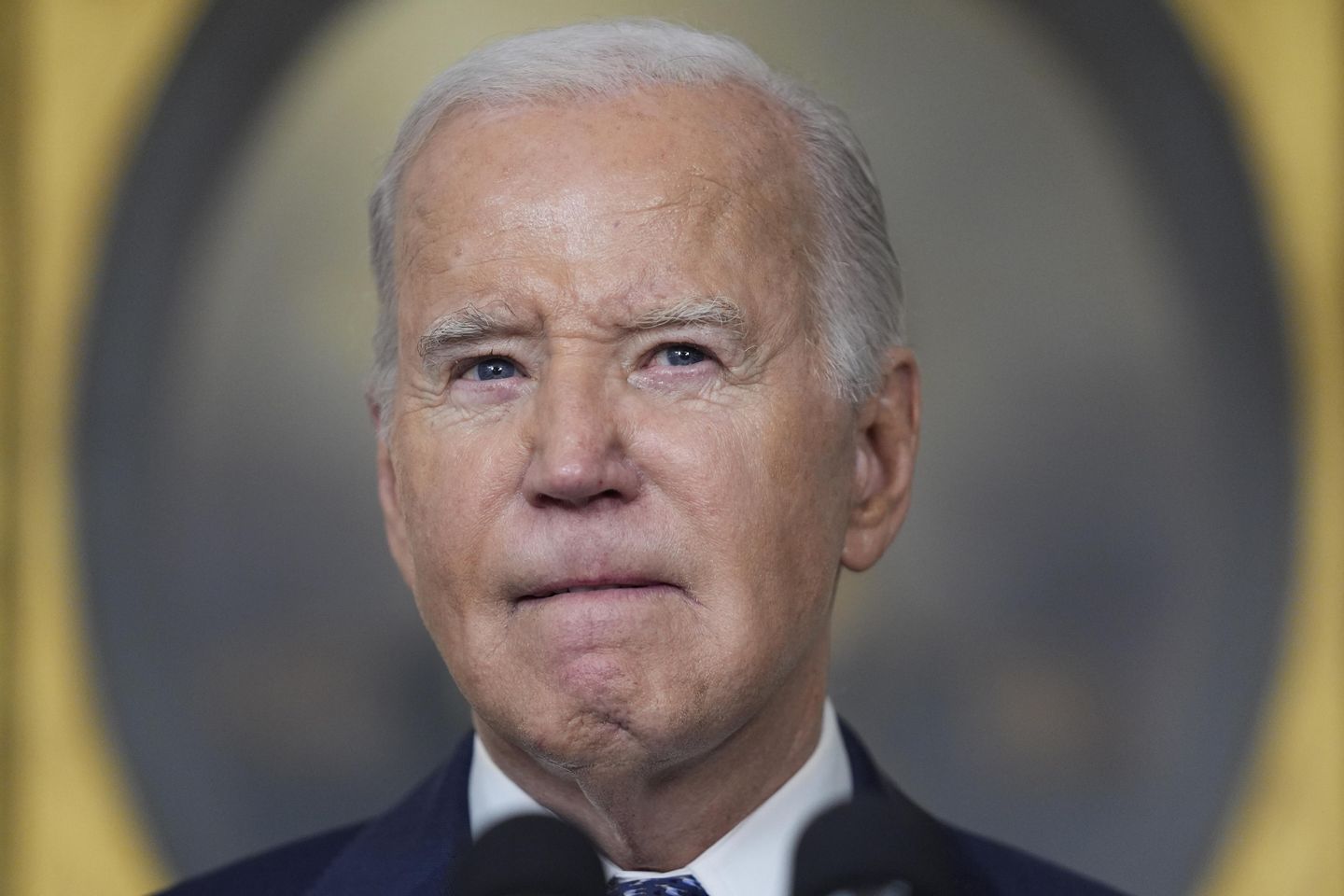President Biden closed his last full fiscal year with a $1.833 trillion deficit, marking the worst nonpandemic year in history and raising fears the government is heading for an uncontrollable fiscal spiral. The staggering deficit figure, released by the Treasury Department on Friday, is more than double the previous year’s deficit of $778 billion. It is also significantly higher than the deficit projected by the Congressional Budget Office (CBO) earlier this year.
The record-breaking deficit comes as the Biden administration continues to push for trillions of dollars in new spending on infrastructure, social programs, and climate initiatives. The President’s ambitious agenda has faced fierce opposition from Republicans, who argue that the spending proposals are irresponsible and will only worsen the country’s already dire fiscal situation.
The $1.833 trillion deficit is the largest since World War II, when the country was fighting a global conflict that required massive government spending. In recent years, deficits have been on the rise due to a combination of increased government spending and decreased revenue from tax cuts. However, the pandemic-related spending in 2020 and 2021 had pushed the deficit to unprecedented levels, with last year’s figure being the highest on record.
The Biden administration has defended its spending proposals, arguing that the investments are necessary to address the country’s crumbling infrastructure, growing economic inequality, and the urgent need to combat climate change. The President has also emphasized that the government can afford the new spending, pointing to low interest rates and the country’s ability to borrow at historically low costs.
However, critics have warned that the growing deficit could have serious consequences for the economy in the long run. A high deficit can lead to higher interest rates, inflation, and a weaker dollar, which could in turn harm businesses, consumers, and the overall economy. Some economists have also raised concerns that the government may eventually be forced to raise taxes or cut spending to reduce the deficit, which could slow down economic growth and lead to job losses.
The Treasury Department’s figures show that government spending reached $7.4 trillion in the last fiscal year, an increase of 15% from the previous year. Meanwhile, revenue only increased by 6% to $5.6 trillion, resulting in the record deficit. The deficit was also exacerbated by a decline in tax revenue, which fell by 22% due to the impact of the pandemic on businesses and individuals.
The Biden administration has insisted that the deficit is a temporary result of the pandemic and that the economy will rebound once the crisis is over. The President has also expressed confidence that his spending proposals will create jobs, stimulate economic growth, and ultimately reduce the deficit through increased tax revenue.
However, many economists remain skeptical of these claims, arguing that the deficit is a long-term problem that requires serious attention. They point to the fact that the deficit was already on the rise before the pandemic and that the current spending proposals could exacerbate the situation further. Some have called for a more balanced approach to fiscal policy, with a focus on reducing government spending and increasing revenue through tax reform.
The record deficit has also reignited the debate over government spending and the role of the federal government in the economy. Republicans have accused the Biden administration of overspending and expanding the size of government, while Democrats have defended the President’s agenda as necessary to address the country’s most pressing challenges.
The deficit figures are likely to fuel further political battles in Washington, as lawmakers grapple with how to address the country’s fiscal situation. The Biden administration is expected to face increasing pressure to scale back its spending proposals and find ways to reduce the deficit, while Republicans are likely to continue pushing for spending cuts and tax cuts to address the issue.
Overall, the $1.833 trillion deficit represents a significant challenge for the Biden administration and the country as a whole. As the economy continues to recover from the pandemic, policymakers will need to make tough decisions on how to address the deficit and ensure the country’s long-term fiscal stability. The record deficit serves as a stark reminder of the importance of responsible fiscal policy and the need for bipartisan cooperation to address the country’s economic challenges.









